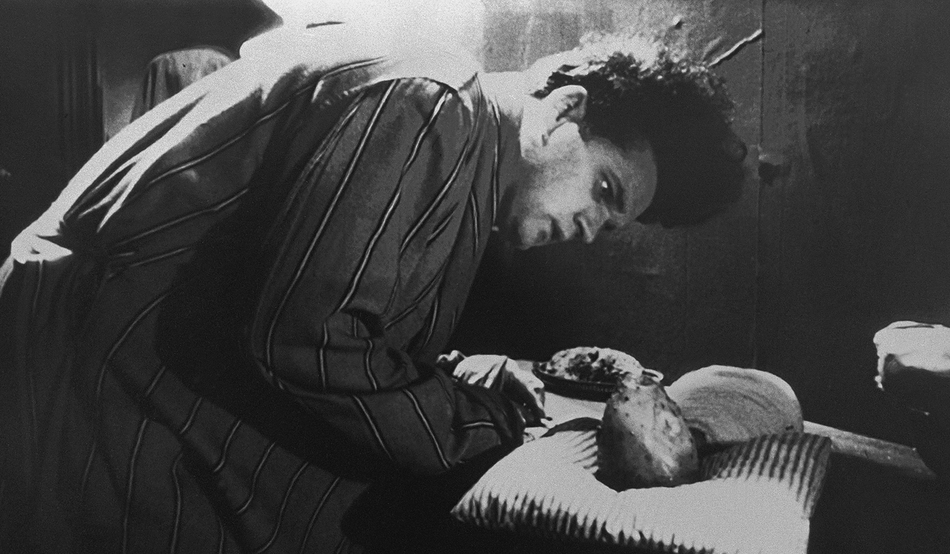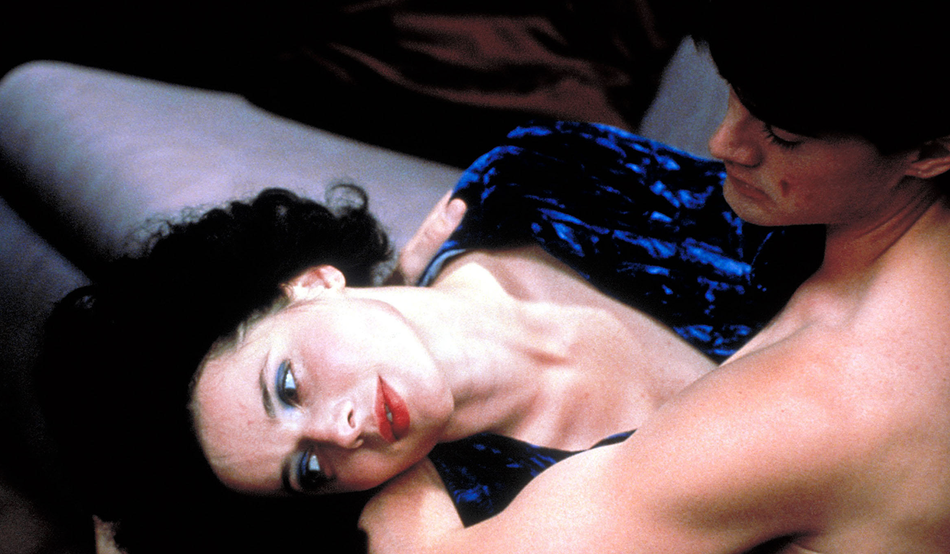The LA wildfire may have claimed its most famous victim. “There’s a big hole in the world now that he’s no longer with us,” read the Facebook post of the family of David Lynch after his death last week. Suffering from emphysema and needing supplemental oxygen to walk even small distances, the 78-year-old director’s health took a “turn for the worse” after he was evacuated when the Sunset Fire came within yards of his home. Located just off Mulholland Drive, Lynch’s house is an angular, sparsely furnished concrete duplex designed by Lloyd Wright, son of Frank Lloyd Wright. Lynch used it as the house of Bill Pullman in Lost Highway, his 1997 noirish riddle about a saxophonist (Pullman) accused of murdering his wife, played by Patricia Arquette, who may also be guilty of murdering a man named “Dick Laurent” and disposing of his body in a blaze.
If Lynch’s death was the result of a similar conflagration—inhaling smoke can be fatal for sufferers of emphysema—it is a twist of fate that can only be called, for want of a better word, Lynchian. His films roar with flames. Fire claims the bodies of Dick Laurent in Lost Highway, Windom Earle in Twin Peaks and Lula’s father in Wild at Heart, a film whose frequent acts of sex and violence are punctuated with lingering close-ups of cigarettes being lit, shot to look like meteorites. “I came in wanting to smoke,” said Lynch in a recent Instagram post announcing an end, after 54 years, to his two-pack-a-day habit of “lighting cigarettes on fire,” as he called it, as if a few puffs of American Spirit were signs of an incipient pyromania. “Sitting in front of a fire is mesmerising,” he once said. “It’s magical. I feel the same way about electricity. And smoke. And flickering lights.” Fire walked with him.
Like all the imagery that pervaded his work—lipstick, abandoned factories, red drapes, chevrons, torch-singers, doppelgangers—the fires were purely mesmeric, repelling elucidation as much as they seemed to cry out for it. The plumes of passion? The attraction of danger? The roar of the unconscious? Lynch was one of the very purest of creative talents, deeply intuitive, making films attuned to their own wigged-out, full-fathom frequency. His movies, too, mesmerised—conceived in dream-space, they seemed to enter us through some combination of eyes, ears and nape-of-the-neck intimation. “There are scenes in the movie that feel like they’re more inside my head than they are on the screen,” he said of his first feature, Eraserhead, a black-and-white, industrial-edged tone poem about a father who raises a baby that looks a little like a skinless foetus who has a lady living in his radiator. God forbid any interviewer who asked him what it all meant. His answers were always so transcendentally opaque, he turned every encounter into delicious, koan-like comedy.
“Keep your eye on the donut not the hole,” he would tell them. Or, “an empty room is slow,” and the journalist would scribble down the master’s pearls, completely unable to square the fact that America’s “czar of the bizarre”, far from drinking the blood of bats, seemed a paragon of howdy-doody politeness in khaki pants and preppy blazers who meditated once a day, used words like “nifty” and thought ideas were like fish—you just gotta go deep. Dennis Hopper, one of the stars of Blue Velvet, Lynch’s neo-noir 1986 masterpiece about ritualistic rape, murder and voyeuristic sex, was puzzled by the fact that Lynch could not bring himself to say the word “Fuck” even though the script he had written was peppered with it. “When you say… that word,” Lynch would intone, pointing to it on the page. It was almost as if his nightmares passed clean through him, leaving him clean as a whistle.
“David is one of the happiest people I’ve ever met,” Isabella Rossellini, the film’s other star, told me when I interviewed her in the manager’s office of Bulgari, on Fifth Avenue, to talk about her new line of handbags for the jewellery maker in 2010. The rape of her character by Hopper’s was one of the first scenes they shot. “It was a difficult scene for me and Dennis because we had just met that morning, for breakfast. But David thought we should shoot if first to get it over with. It was sort of a ritualistic rape: Dennis’s character [Frank Booth] would come often at night and rape my character [Dorothy Vallens]. And when we filmed it, David was so happy he was laughing, we couldn’t believe it. I said, ‘David, what is there to laugh at?’ I don’t know why, but he was laughing. Still, to this day, I do not know what he was laughing about.” A creator’s delight in a bet that had paid off? Laughter in the dark? “When people get that obsessed there’s humour in it to me, and I loved it,” he later said of his laughter while filming that scene, but that’s not really sufficient, either.
There is a very black joke at the heart of Blue Velvet, in which the forces of normalcy—the white picket fences and swaying roses, trees, diners and roadhouses—are all viewed askance, the characters expressing their decency in bland bromides about love and neighbourliness that could have come out of a Hallmark card. And then Hooper’s Frank Booth arrives, rutting and fucking and clutching his oxygen mask, as if belched from some other hell entirely, all his kinks and compulsions observed in excrutiating, livid, porous detail. It’s like a Francis Bacon monster has dropped in on the Larry the Lamb show. So where did Booth come from? Probing for clues in Lynch’s childhood—a charmed, bucolic affair in Boise, Idaho, in the 1950s, the scent of freshly mowed lawns in the air—is like probing the hole in the proverbial donut, although everything in his work points back there. The lumber, the bobby-soxers, the apple pie and coffee.
Rossellini told me a story, which Lynch later retold for his biographer, Kristine McKenna, in which he and his brother were walking along a darkened street at night when they came across a naked, bloodied woman. “She couldn’t walk very well and she was in bad shape,” he told McKenna, “and she was coming toward us but not really seeing us. My brother started to cry and she sat down on the curb. I wanted to help her but I was young and didn’t know what to do… She was scared and beat up, but even though she was traumatized, she was beautiful.”
It's a fascinating story, not just because the scene recurs in Blue Velvet, but because so much in Lynch’s films resembles a child’s intimation of all the terrible things that go on in the bad part of town. Neither Lynch nor his brother could possibly understand what had happened to that woman, but they understood enough for his brother to burst into tears. Lynch’s worldview is adolescent in the descriptive and not pejorative sense, reprising a loss of innocence no less shocking for lacking a precipitating event—no smoking gun, no “Rosebud”—its effects instead felt diffusely as an attack of the cosmic heebie-jeebies. Lynch is the master of mood—the poet maudit of bad vibes, auras and karmic dread—in a way unmatched in American film since Charles Laughton’s 1955 The Night of the Hunter, which François Truffaut famously likened to a “horrifying news item retold by small children”.
That unevenly matched conflict, between the macabre and the mundane, is what people mean by the word “Lynchian”—whose dark comedy the director was increasingly alive to as his career progressed. Certainly by the time of Twin Peaks and Wild at Heart, Lynch knew full well what “Lynchian” entailed and was happy to play to the peanut gallery, although unlike other directors who have become adjectives—Spielberg, Tarantino—he had very few copyists, outside of a smattering of films with dream sequences featuring dwarves in the mid-1990s. (“Have you ever had a dream with a dwarf in it?” complained Peter Dinklage in Steve DeCillo’s behind-the-scenes filmmaking satire, Living in Oblivion. “Well, I’m sick of it! You can take this dream sequence and stick it up your ass!”) Even at the height of global Lynch-mania, when everyone was having watch parties of Twin Peaks while listening to Chris Isaac’s “Wicked Game” and drinking their “damn fine” coffee from their Twin Peaks mugs, Lynch’s influence on his fellow filmmakers was close to zilch.
Who could possibly follow in his footsteps? His impact went over the head of Hollywood and under the feet of his fellow filmmakers—cutting a zig-zagging path wide enough for one. The only person who could do Lynchian was Lynch. But the impact of his films went far and deep. The tremendous warmth of recollection that has surged on social media in the days after his death testifies to the many blessings he brought his collaborators—“I’m yelling from the bullhorn, Godspeed buddy Dave,” wrote Naomi Watts, his Mulholland Drive star, on Instagram—and also to the note of transcendence struck by even the darkest of his films. “I’m pretty sure I’m connected to the moon,” he tweeted in 2010. The Lady in the Radiator brings glad tidings. David Lynch was always out of this world.














